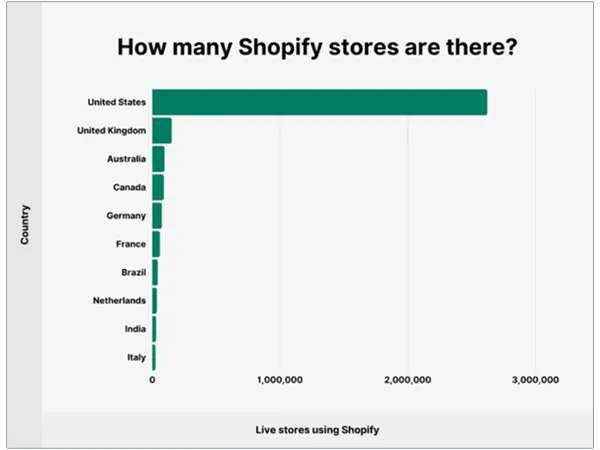
We will take a look at the two big players in the WooCommerce eCommerce market versus Shopify. About 800 thousand online stores operate on Shopify. However, WooCommerce claims to be the most popular e-commerce forum in the world. So who will be first?
As it turns out, the favorite choice of users is Shopify. The application is not only powerful but also easy to use and offers unique templates. Qualified support service is provided here. You can always migrate WooCommerce to Shopify with professionals.
However, this does not mean that WooCommerce is significantly inferior. It is advanced and capable of turning a project into a powerful online store. It offers open-source, making it a free installation.
We will take a look at WooCommerce powered by Bluehost as the leading hosting provider when designing sites for e-commerce. We will try to find out shortly which of these two big names will be the most suitable for starting a project.
Surely, the reader wants someone specifically to answer, which platform will be better specifically for him, instead of reading the comparison. The good news is that we can offer you to familiarize yourself with the most important criteria when choosing. We will offer positive and negative points, as well, for each forum.
The Virtues of Shopify Pros

(This graph shows the number of live Shopify stores by country).
Hosting software includes hosting as well as security. You also don’t need to use code to open an online store. There is round-the-clock support, seven days a week and seven days a week. This is necessary for the sales figures of the customers to be high.
Multichannel integration is provided. It is possible to sell on third-party largest resources as embedded information.
Disadvantages of Shopify

This is where transaction fees are charged. This is the only platform where there is a commission for conducting monetary transactions if you do not use your money gateway. Apps are not cheap.
Benefits of WooCommerce

Almost limitless customization is provided. You can use open source to customize your website and transform your online presence with a different web design however you want. It is characterized by excellent flexibility and scalability.
This will make it possible to translate into reality almost any idea in the field of e-commerce. Differs in an optimal ratio of price and quality. Free installation is provided here. Advanced features to improve certain features are offered at an affordable cost.
Disadvantages of WooCommerce
It will be difficult for beginners to work here, especially if there is no programming knowledge. It will be difficult to create an online store the way you want it. There is no doubt that WooCommerce has a steeper learning curve when compared to Shopify.
Taking into account the comparative characteristics, the second option will be easier for beginners to get comfortable with. Here are some more arguments. When you get to know the Shopify app, you will see that it is easy to change almost every element presented on the page.
If you want to sell numerous products and not worry about having complete control over the design, we also recommend that you pay attention to Shopify, it will be a good option. Shopify is a hosted eCommerce platform. In other words, this means that the user does not have to solve technical issues on his own.
This applies to both the domain name, hosting, where the site will be located, and security certificates. Shopify will take care of all this. Also, you won’t need to install, manage, or update any software. There is no need to think about security issues or backups as well.
Do You Know?
WooCommerce’s stats reveal the plugin has had a total of 194,934,629 downloads in its lifetime.
Conclusion
In comparison, WooCommerce requires a lot more work. You will need to look for web hosting and deal with security. But these issues are easily resolved.
Shopify offers many features, safety, and the capability to design a store in an easy and code-free way. A quick comparison between them indicates, that Shopify has 24×7 support, simple technicalities, and sleek templates, that are easy to tailor.
While WooCommerce requires a lot of customization and is technically competent to provide the consumer with greater control over their site designing and hosting.
We recommend using Bluehost for work. The tariff plans include necessary features, a free domain name, and an SSL certificate. You can find more useful information here: Shopify Customization.







